
THE BAW BAW PLATEAU is home to one of Australia’s most remarkable ecosystems. Here, in Baw Baw National Park in Victoria’s High Country, dense, lush vegetation intertwines with bright green moss so thick that only outcrops of granite rock can break through.
Dragonflies hover above crystal-clear pools of water, daisies reach for the sun, and if you listen closely, you might hear the call of a certain endemic frog species that’s one of the world’s rarest. Known simply as Baw Baw bog, the remarkable natural system is protected within Australia’s highest national park.
For most of us, the word bog doesn’t usually evoke pleasant mental imagery. And yet bogs are idyllic places. A bog is a specific type of ecosystem that’s often referred to as peatland or alpine peatland. And although these terms are technically correct, they’re just too generic”, says Dr Arn Tolsma, a senior scientist at Victoria’s Department of Environment, Land, Water and Planning’s Arthur Rylah Institute.
“A bog is a freshwater peatland that contains sphagnum moss,” Arn explains simply. The EPBC Act Environment Protection and Biodiversity Conservation Act 1999] calls them Alpine sphagnum bogs’, and that’s probably the best term to describe them.”
Such places need a combination of a few things to form and thrive. Most important is a plentiful supply of groundwater that keeps the soil saturated for most of the year.
This story is from the January - February 2023 edition of Australian Geographic Magazine.
Start your 7-day Magzter GOLD free trial to access thousands of curated premium stories, and 9,000+ magazines and newspapers.
Already a subscriber ? Sign In
This story is from the January - February 2023 edition of Australian Geographic Magazine.
Start your 7-day Magzter GOLD free trial to access thousands of curated premium stories, and 9,000+ magazines and newspapers.
Already a subscriber? Sign In
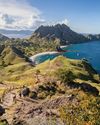
SULAWESI SENSATIONS
There are worlds within worlds and marvels untold waiting to be experienced on Indonesia's remote islands.
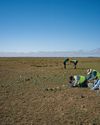
SEARCHING FOR AUSSIE DINOSAURS
Our understanding of where to find ancient life in Australia has been turned on its head by a new appreciation of the country's geology. Now the world is looking to our vast outback as the latest hotspot to locate fossils.
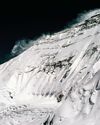
THE HARDEST NIGHT
The first Australian ascent of Mt Everest in 1984 is one of the great feats of mountaineering. Climbed by a small team semi-alpine style, with no bottled oxygen, via the Great (Norton) Couloir, it remains unrepeated 40 years later.
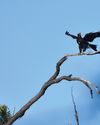
WEDGE-TAILED WONDER
The chance discovery of an eagle nest leads to an extended vigil observing normally hidden behaviours of one of nature's supreme winged marvels.
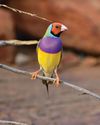
BURDENED BY BEAUTY
Northern Australia's Gouldian finch survives in huge numbers in cages around the world, but its wild population continues to struggle.
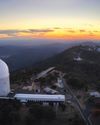
A TELESCOPE FOR A GOLDEN AGE
After a stellar 50 years as one of the country's major scientific assets, the AAT continues to play a major role in keeping Australian astronomy on the world stage.
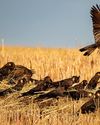
COCKY WHISPERING AT COOMALLO CREEK
This patch of remnant bush on the edge of the West Australian wheatbelt is a place loved by one of Australia's rarest bird species and the man who has studied the site for more than 50 years.

A PIONEERING PAIR
Louisa Atkinson and her mother, Charlotte, were among Australia's earliest authors, and pioneers in women's rights.
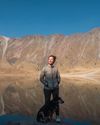
THE LONGEST WALK
Lucy Barnard is walking from Argentina to Alaska -the length of the Americas - on an extraordinary journey of endurance and adventure.
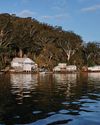
SECLUDED, BUT NOT ALONE
In an era of heightened social isolation, where many of us lead lonely lives, Dangar Island offers the chance to be part of a supportive, connected community.